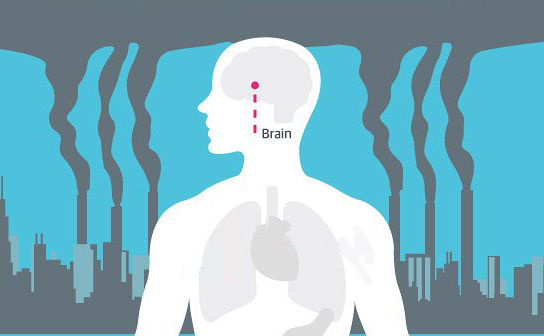Brain Health: Researchers From University Of California Claim That Traffic-Related Air Pollution Affects Early Brain Development
Source: Brain Health Jun 18, 2020 5 years, 7 months, 3 weeks, 3 days, 8 hours, 28 minutes ago
Brain Health: Medical researchers from the University of California-Davis, have found a link between traffic-related air pollution and an increased risk for changes in brain development relevant to neurodevelopmental disorders.
The new study based on rodent models, corroborates previous epidemiological evidence showing this association.

University of California-Davis toxicologist Dr Pamela Lein, senior author of the study told Thailand Medical News,” Though air pollution has long been a concern for pulmonary and cardiovascular health, it has only been within the past decade that scientists have turned their attention to its effects on the brain.”
The study findings were published in the journal: Translational Psychiatry.
https://www.nature.com/articles/s41398-020-0845-3
In the past, researchers had documented links between proximity to busy roadways and neurodevelopmental disorders such as autism, but preclinical data based on real-time exposures to traffic-related air pollution was scarce to nonexistent.
Dr Lein worked with UC Davis atmospheric scientist Dr Anthony Wexler and first author Dr Kelley Patten, a doctoral student in the UC Davis graduate group for pharmacology and toxicology, to develop a novel approach to study the impacts of traffic-related air pollution in real time. They set up a vivarium near a traffic tunnel in Northern California so they could mimic, as closely as possible, the experience of humans in a rodent model.
Dr Leain added, "This approach was a creative way to get at the question of what impacts air pollution has on the brain in the absence of confounding factors such as socioeconomic influences, diet, etc. It is important to know if living close to these roadways poses a significant risk to the developing human brain. If it does, scientists can warn susceptible individuals, such as pregnant women particularly those who have already had a child diagnosed with a neurodevelopmental disorder to take appropriate precautions to minimize risks to the health of their child's brain."
The study team compared the brains of rat pups exposed to traffic-related air pollution with those exposed to filtered air. Both air sources were drawn from the tunnel in real time.
The researchers found abnormal growth and increased neuroinflammation in the brains of animals exposed to air pollution. This suggests that air pollution exposure during critical developmental periods may increase the risk for changes in the developing brain that are associated with neurodevelopmental disorders.
Dr Patten added, "What we witnessed are subtle changes.But we are seeing these effects using air pollution exposures that fall within regulatory limits. With the backdrop of other environmental and genetic risk factors in humans, this may have a more pronounced effect. This exposure also contains very fine particulate matter that isn't currently regulated."
In another separate study, Dr Patten extended this exposure for 14 months to look at longer-term impacts of traffic-related air pollution and is in the process of writing up those results.
The study team is also in
terested in what component of traffic-related air pollution is driving the neurodevelopmental outcomes.
Should they be to identify the culprits, Dr Lein said, then scientists can approach legislators to develop scientifically based regulations to protect the developing human brain.
For more on
brain health and
air pollution, keep on logging to Thailand Medical News.
